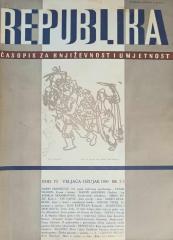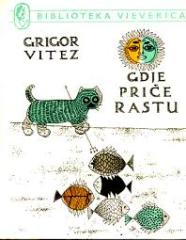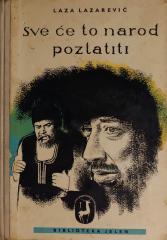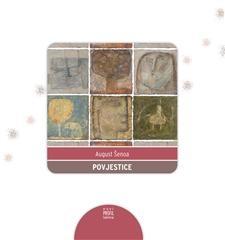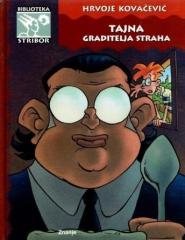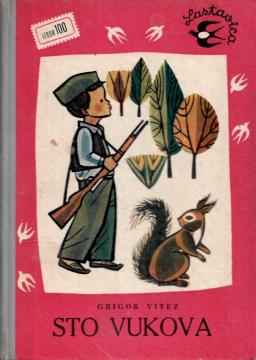
Sto vukova
Grigor Vitez (1911.–1966.), jedan od najvoljenijih hrvatskih pjesnika za djecu, objavio je 1957. godine zbirku "Sto vukova i druge pjesme za djecu", koja je brzo postala klasikom dječje književnosti.
Ova zbirka od oko 90 stranica, ilustrirana od strane talentiranih umjetnika poput Hasana Sućeske, sadrži preko 50 kratkih, ritmičnih pjesama koje slave djetinjstvo kroz igru riječi, humor i ljubav prema prirodi. Vitez, inspiriran slavonskim selom i ratnim iskustvima, stvara svijet gdje se svakodnevno pretvara u čaroliju, potičući maštu i osjetljivost.
Zbirka se otvara istoimenom pjesmom "Sto vukova" – duhovitim dijalogom između malog Jove i skeptičnog prijatelja. Jova se hvali susretom sa "ravno sto vukova" u šumi: "Zubi strašni, oči sjaju, pa urlaju, zavijaju..." Ali pod pritiskom pitanja ("Nije valjda...? Kako si ih prebrojao?"), broj se topi: "Ne baš ravno sto... možda pedeset... deset... dva!" Na kraju se otkriva istina – samo ušuškanje miša u šumi, a Jova priznaje strah. Pjesma koristi hiperbolu, gradaciju i ponavljanje za humor, ismijavajući hvalisanje i pretjerivanje, uz poruku: "U strahu su velike oči." Ova struktura – obrnuta gradacija od panike do smijeha – idealna je za recitacije.
Ostale pjesme nastavljaju u duhu veselja i otkrića: "Prepelica" slavi ptice i proljeće, "Jedan dan" prati dječji dan pun igara, "Vjetar" personificira elemente prirode kao prijatelje. Teme su univerzalne – strah i hrabrost, ljubav prema životinjama (vukovi, miševi, ptice kao simboli slobode), ciklus života, mašta koja nadilazi stvarnost. Vitezov stil je jednostavan, ali bogat: rima i ritam podsjećaju na narodne pjesme, metafore iz svakodnevnog (šuma kao avantura), a jezik blizak dječjem – kratki stihovi, onomatopeje ("urlaju, zavijaju"). Nema moraliziranja; poruke su suptilne, kroz zabavu.
Zbirka je dio Vitezovog "zlatnog doba" dječje poezije (1950-ih), uz "Kad bi drveće hodalo" i "Jednog jutra u gaju". Ona uči djecu kritičkom mišljenju (sumnjati u priče) i empatiji prema prirodi, dok roditelje podsjeća na čaroliju djetinjstva. Danas se čita u školama za razvoj govora, a njezina toplina traje generacijama – dokaz da prava poezija raste poput šume puna čuda.
Jedan primjerak je u ponudi
- Blago oštećenje korica

